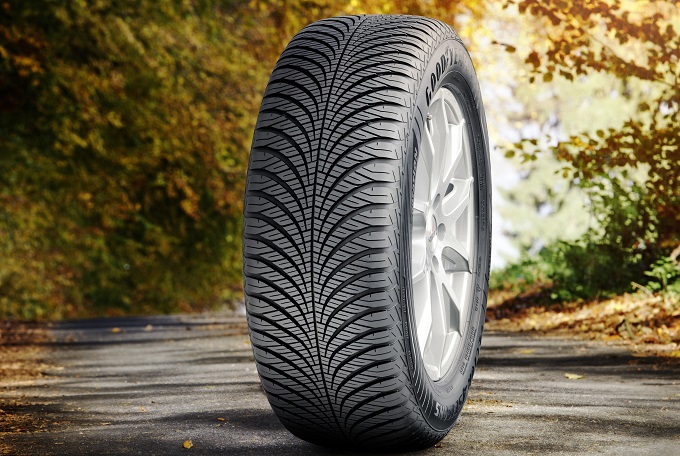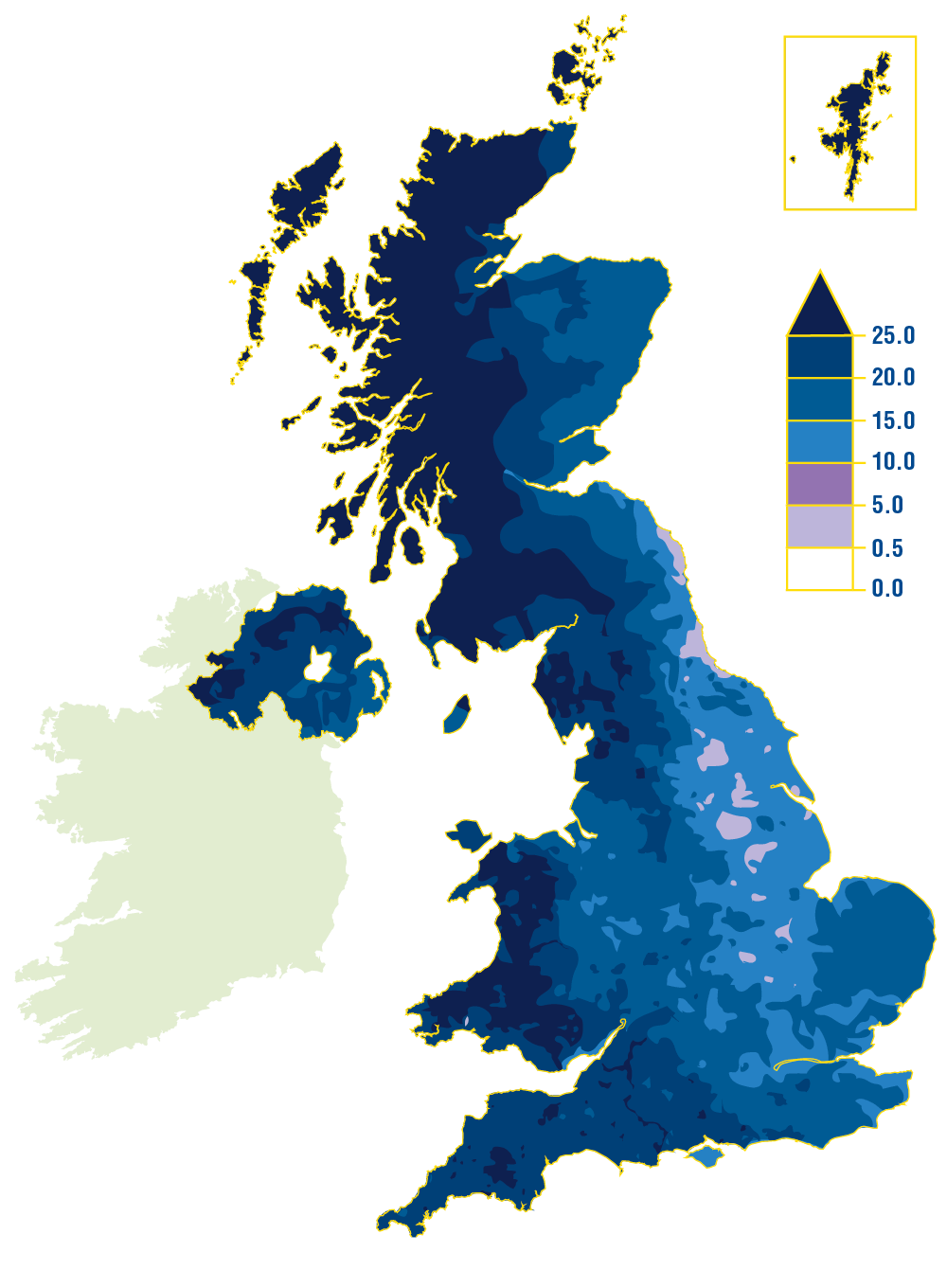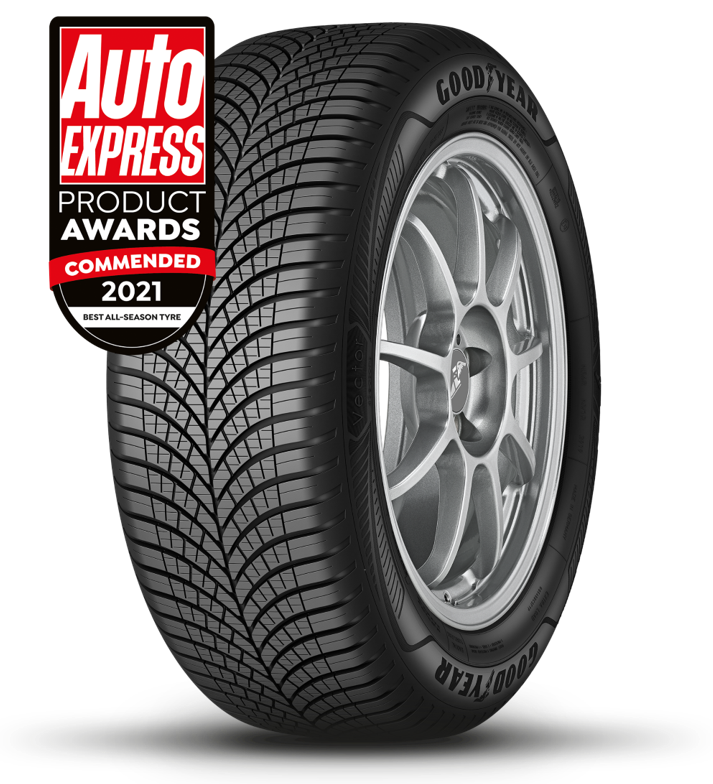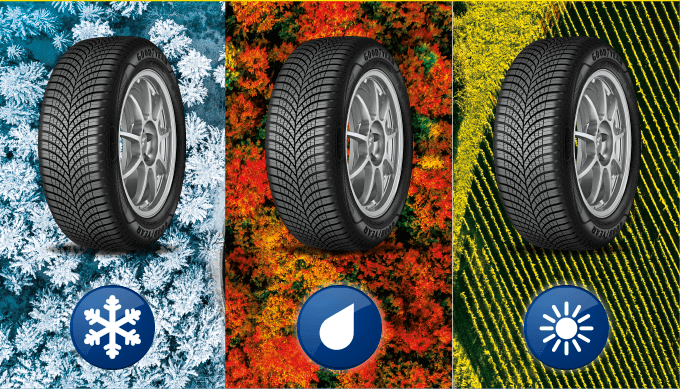You should buy all season tyres if you would like to have excellent tyre performance and safety throughout the year without needing to change from summer to winter tyres.
In Britain, we tend to have mild winters and not-so-hot summers, while rainy downpours can happen all year round. For this reason, all season tyres are a suitable purchase for the vast majority of us. Without having to change tyres, you will be safe to drive in wintry weather, rainy downpours and hot, dry roads depending on the time of year.
Britain is also known as a country that experiences four seasons in one day, where a cold winter’s day can start out with snow and ice on roads in the morning, blazing sunshine in the afternoon and heavy rain in the evening. A premium quality all season tyre such as the Goodyear Vector 4Seasons Gen-3 is designed to cope perfectly on a day of mixed weather conditions.
However, if you do live in a part of the country that often has very heavy snowfalls or freezing cold, icy conditions on roads that aren’t gritted, you may be better investing in winter tyres and summer tyres rather than all season tyres. Similarly, some countries in Europe require you to use winter tyres by law in the winter, so if you drive through those countries you will need to have winter tyres on your car.


















